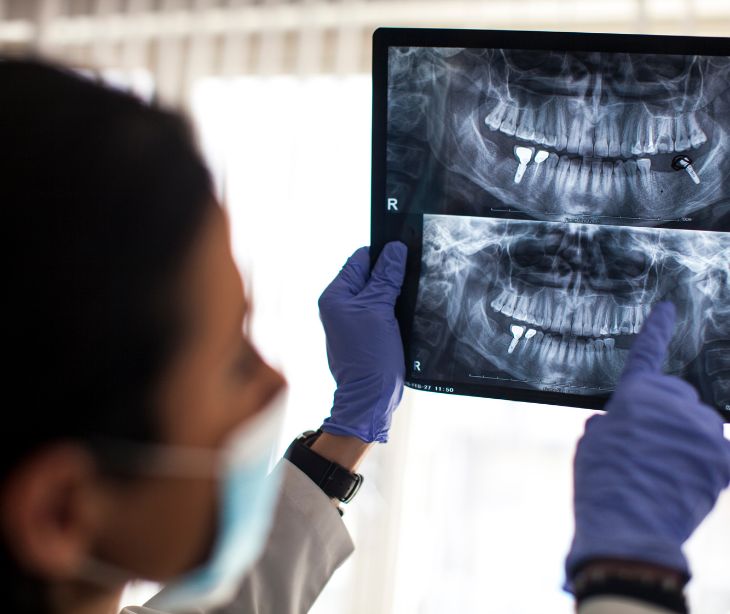
A Perspectives in Health Information Management article, revealed that compliance officers can act as seasoned experts, providing extensive experience in healthcare and compliance practices. Their expertise is vital in navigating the complex HIPAA legislation and the HITECH Act enhancements, which demand meticulous implementation of privacy and security policies.
Do HIPAA compliance officers need to be certified?
Although there are no explicit educational requirements for a Security and Privacy Officer, HIPAA requires adequate staff training within covered entities and business associates. Therefore, any compliance officer developing and maintaining internal policies and procedures should have extensive knowledge of HIPAA regulations and associated legislation.
HIPAA compliance training certifications are available to allow staff to provide evidence of their knowledge regarding regulations and the application of HIPAA within organizations. Depending on the size and efficiency requirements for policy regulation, organizations may require compliance officers to possess degrees that enable them to understand complex HIPAA matters.
For instance, a degree in IT or computer sciences equips individuals with an understanding of encryption and security measures for electronic protected health information (ePHI), thereby facilitating the enhanced implementation of cybersecurity measures.
Responsibilities of HIPAA compliance officers
Privacy and Security officers share similar duties, leaving their roles to often be combined in smaller organizations. However, key distinctions in the case of separate roles should be noted. The Privacy Officer is primarily responsible for overseeing policies and procedures that ensure the confidentiality and proper handling of PHI in compliance with the HIPAA Privacy Rule. On the other hand, the Security Officer concentrates on protecting ePHI by implementing measures that safeguard against unauthorized access, data breaches, and other security threats. Specific duties include:
Duties of privacy officers
- Ensuring compliance with HIPAA's Privacy Rule and regulations.
- Managing consent management and data sharing agreements.
- Creating and implementing internal privacy policies and procedures.
- Ensuring effective and reliable communication, such as HIPAA compliant email.
- Training and education on privacy policies and procedures.
- Assessing and managing risks to PHI.
- Maintaining proper documentation and record-keeping.
- Addressing and resolving privacy-related complaints or issues.
Duties of security officers
- Ensuring compliance with HIPAA's Security Rule and other relevant regulations.
- Monitoring and responding to security incidents and breaches.
- Implementing technical safeguards, such as access controls and encryption.
- Creating and implementing security policies and procedures such as Disaster Recovery Plans.
- Providing security training and education to staff members.
- Staying informed about emerging security threats.
Role of compliance officers in training staff
Privacy and security officers actively collaborate with various departments to effectively implement privacy and security measures. This collaboration involves working closely with IT, legal, human resources, and compliance departments to align efforts and address concerns.
Privacy and security officers actively contribute to training and education within departments to design and deliver awareness programs, equipping employees with the necessary knowledge to protect privacy and maintain security. Additionally, privacy and security officers work with risk management teams to conduct assessments and identify vulnerabilities, enabling the implementation of appropriate risk mitigation strategies.
HIPAA compliance officers collaborate with incident response teams to initiate timely and effective responses to privacy or security incidents, coordinating investigations and implementing corrective actions. Officers also establish strong relationships with vendors and business associates, ensuring compliance and promoting the understanding of privacy and security obligations.
Related: Do you need a dedicated HIPAA compliance officer?
FAQs
What are the responsibilities of HIPAA?
HIPAA's responsibilities include protecting the privacy and security of individuals' health information, ensuring data confidentiality, integrity, and availability.
Who needs to comply with HIPAA?
Entities that need to comply with HIPAA include covered entities such as healthcare providers, health plans, healthcare clearinghouses, and business associates that handle PHI.
How do you become HIPAA compliant?
Becoming HIPAA compliant involves conducting a thorough risk assessment, implementing required physical, administrative, and technical safeguards, ensuring patient rights to their health information are upheld, and providing ongoing training to employees on HIPAA privacy and security policies.
Subscribe to Paubox Weekly
Every Friday we bring you the most important news from Paubox. Our aim is to make you smarter, faster.



